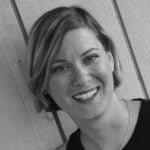- EY's Ginnie Carlier gives her advice for how to get a job at an accounting firm.
- The Big Four accounting firm values lifelong learners and candidates with an "adventure mindset."
- She says to ask about an interviewer's role models within the company or outside of it.
This as-told-to essay is based on a conversation with Ginnie Carlier, the vice chair of talent at EY Americas from Denver, Colorado, about how to get into the Big Four accounting firm. The following has been edited for length and clarity.
When I started my career nearly 30 years ago as an assurance professional — which involved verifying financial statements and company records and checking compliance with regulatory guidelines — I never imagined that I'd have the opportunity to work around the world and one day lead talent for EY Americas.
I joined EY in its Cleveland, Ohio, office in 1993, then moved within the firm to EY's Silicon Valley office in 2000 to work with high-growth tech companies of the dot-com era. Over time, I cultivated an adventure mindset that helped me seize opportunities, like a transfer to Dubai. I also became an advocate for inclusive leadership and the power of diversity of thought. This resulted in being appointed the first diversity and inclusiveness leader for the EY Middle East and North Africa region — and later becoming the Europe, Middle East, India, and Africa assurance talent leader.
Upon my return to the US, I served as the EY US-West Region talent leader, where I prioritized the development and wellbeing of 15,000 people across 18 states. Today, as the EY Americas vice chair of talent, I lead efforts to create exceptional experiences for over 98,000 people across 31 countries.
We have a multifaceted hiring strategy that includes recruiting from community colleges, universities, professional organizations, and other strategic alliances. We leverage technology along with in-person engagement to meet candidates where they are.
We look to add people to our team who share our values
Our people are ready to show up as team players and present themselves as resilient leaders through integrity in their work and their relationships. Most importantly, our people understand the importance of always acting equitably and fairly.
We're looking for candidates who are lifelong learners and are curious about what's possible. These individuals embrace change, ask insightful questions, and are active listeners. We're looking for transformative leaders who go beyond a growth mindset to adopt an adventure mindset — just like I did! — where they aren't afraid to take on new opportunities.
A résumé should go beyond an individual's day-to-day work and accomplishments to showcase areas of interest and leadership. For instance, if someone regularly volunteers in their community, we're interested in knowing that. The same goes for leadership roles.
Many people at EY are actively involved in our professional networks — what are known as employee-resource groups — our corporate-responsibility efforts, and even people-advisory boards. These are great examples to highlight in a résumé and interview and help us understand what's important to a candidate professionally but also personally.
One trend we're seeing is résumés with a personal purpose statement. If a candidate has one, they should certainly it include and be prepared to talk about it in an interview.
One of the best things a candidate can do during the interview is bring their résumé experience to life with stories and examples
I'll never forget this one candidate who came in and completely won me over through his story and taught me a valuable lesson about looking beyond a résumé.
He was a full-time accounting student who also bartended to support his family and was interviewing for a role on our assurance-services team. He offered up his story at the start of the conversation by talking about how his work as a bartender had prepared him for a career in professional and client services. He told me why he was working so hard and his aspirations for continuing to help out his family while pursuing his goal of becoming an assurance professional.
Over the course of our conversation, he owned his narrative by focusing on how his experience would set him up for success at EY. He painted a compelling picture of how the skills he acquired bartending would translate to being a high performer at EY. This experience wasn't necessarily "traditional," but his mindset, positive attitude, and clear ability to overcome hurdles made him stand out.
When candidates share their thought process and the actions they took when faced with new and challenging situations, we can better understand their ability to adapt, overcome obstacles, and navigate uncertainty. For instance, they can share an example of how they handled a project where all the information was not known, or what happened when an assignment suddenly changed, requiring a significant pivot.
Candidates should feel empowered to ask questions throughout the process
Ask about our firm, culture, business, and teams. An interview is as much an opportunity for a candidate to get to know us as it is for us to get to know a candidate.
It may seem basic, but flipping the script on the interviewer can be a good idea. Ask the person interviewing you why they chose to join the organization — or why they've stayed for so many years. Ask about their role models within the organization or outside of it. Inquire about challenges they've faced and how they overcame them.

